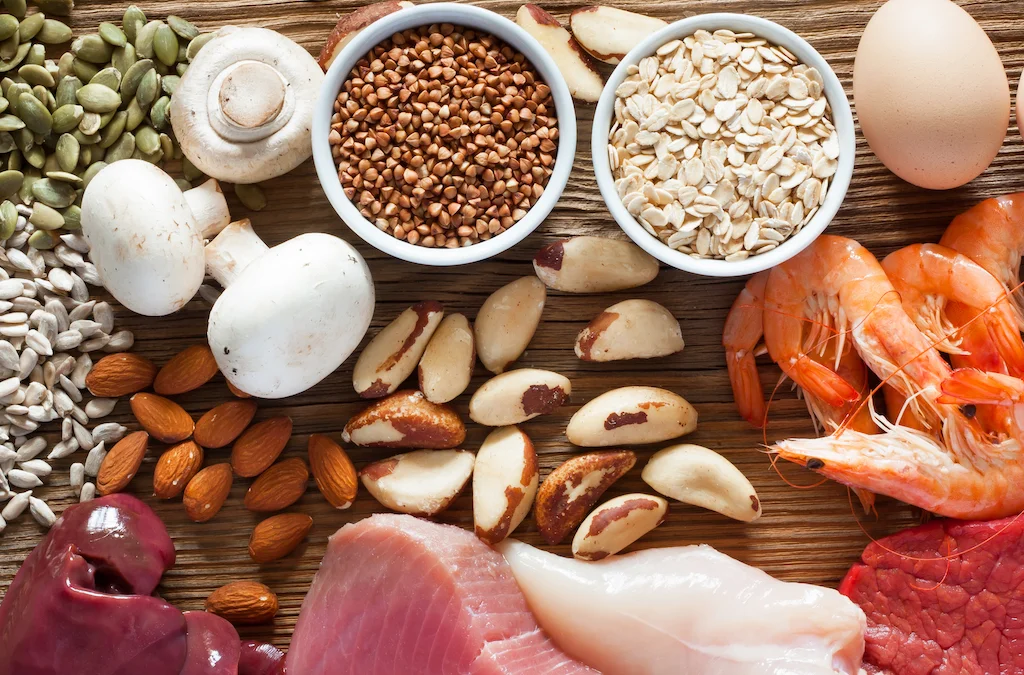Graves disease, Hyperthyroidism, Hashimoto disease, Thyroid cancers, TSH levels, TSH blood test, Hashimoto, Thyroid gland, Parathyroid, Thyroxin, Thyroiditis, Thyroid treatment
Root Cause of Disease
Hyperthyroidism happens when the thyroid gland makes too much thyroid hormone. This condition also is called overactive thyroid. Hyperthyroidism speeds up the body’s metabolism. That can cause many symptoms, such as weight loss, hand tremors, and rapid or irregular heartbeat.
Causes
The thyroid gland is an important organ of the endocrine system. It is located at the front of the neck just above where your collar bones meet. The gland makes the hormones that control the way every cell in the body uses energy. This process is called metabolism.
Many diseases and conditions can cause hyperthyroidism, including:
- Graves disease (most common cause of hyperthyroidism)
- Inflammation (thyroiditis) of the thyroid due to viral infections, some medicines, or after pregnancy (common)
- Taking too much thyroid hormone (common)
- Noncancerous growths of the thyroid gland or pituitary gland (rare)
- Some tumors of the testes or ovaries (rare)
- Getting medical imaging tests with contrast dye that has iodine (rare, and only if there is already a problem with the thyroid)
- Eating too much of foods that contain iodine (very rare, and only if there is already a problem with the thyroid)
Home Remedies to treat Hyperthyroidism
Remedy – 1: Selenium

Selenium, a mineral that is used as a dietary supplement, has a number of specific, documented benefits for Graves’ disease. Patients with Graves’ disease are more likely to have lower selenium levels, and a meta-analysis showed that patients with high antibody levels are more likely to have a relapse. Selenium has been shown to reduce antibodies and the symptoms associated with Graves’ disease, and higher selenium blood levels have been shown to reduce the relapse rate of Graves’. Selenium reduces the eye complications associated with Graves’, plus those that are associated with radioactive iodine treatment.
Product Link: Brazil nuts, Almonds, Sunflower seeds, Pumpkin seeds
Remedy – 2: L-Carnitine

L-Carnitine is an amino acid supplement that has been shown to reduce or prevent hyperthyroid symptoms. It’s fast-acting, has a very low risk of side effects, and is even safe for pregnant women with Graves’ disease. A clinical trial found that L-carnitine had a positive effect on:
- Weakness and fatigue
- Shortness of breath
- Palpitations
- Nervousness
- Insomnia
- Tremors
- Heart rate
- Bone mineral density
However, in this study, L-carnitine did not affect the levels of TSH, free T4, or free T3 thyroid hormone.
L-carnitine can also be used to treat a “thyroid storm”, the most severe, life-threatening form of hyperthyroidism
Product link: L-carnitine tablets
Remedy – 3: Lemon balm and Bugleweed

Two herbs, lemon balm (Melissa officinalis) and bugleweed (Lycopus europaeus), have been shown in limited studies to reduce hyperthyroid symptoms and to block or reduce thyroid hormones.
In one study, bugleweed was shown to be as effective as beta-blockers for protecting the heart from damage from hyperthyroidism. In another study, it was shown to reduce an elevated heart rate from Graves’ disease in humans and rats.
Additional studies have indicated that bugleweed and lemon balm may block or decrease thyroid-stimulating hormone (TSH) and reduce T3 and T4 hormone levels, which would reduce the symptoms of hyperthyroidism.
The evidence here is more preliminary and lower quality than with selenium or L-carnitine, but bugleweed and lemon balm are certainly worth considering as a short-term trial if you are hyperthyroid.
Product Link: Lemon balm, Bugleweed
Remedy – 4: B-complex or B-12
It might not seem like probiotics would have much to do with thyroid disease, but a growing body of research shows that thyroid patients very often have gut imbalances. People with thyroid disease more often have SIBO, leaky gut, low stomach acid, and celiac disease, as well as gut infections like H. pylori or parasites. One particular study noted a strong association between H. pylori infection and Graves’ disease. Probiotics help rebalance the gut microbiome and the immune system, reduce gut inflammation, repair the gut lining, and may improve hyperthyroid symptoms, including anxiety. Even better, probiotics have a very low incidence of negative side effects compared to conventional treatment. Between their safety profile and their demonstrated effects on thyroid health, a trial of triple probiotic therapy is worth exploring.
Product link: B-Complex
Other Remedies
Apple cider vinegar
Apple cider vinegar is an effective natural treatment for hyperthyroidism. It helps regulate hormones and improves their energy metabolism, facilitates weight loss, restores acid-alkaline balance, and aids detoxification. This home remedy is also very effective for other health problems such as high cholesterol, high blood pressure, diabetes, and others. In a glass of warm water, you should add 2 tablespoons of organic apple cider vinegar. You should add a small amount of honey to it. You should drink this home remedy every day on a regular basis.
Coconut oil
Coconut oil is a very effective home remedy for hyperthyroidism because it contains medium–chain fatty acids, which can help you to improve thyroid functioning . It will boost energy, and it will stimulate metabolism. Also, it will help raise the basal body temperature, which is important for people who suffer from low thyroid function. You should use coconut oil for cooking. You should always use extra–virgin organic coconut cooking oil. Also, you can add 2 tablespoons of coconut oil to milk, and you should drink this natural cure in the morning along with your breakfast. You should drink it every day. Also, you can add this home remedy to your smoothies.
Broccoli
Broccoli is a cruciferous vegetable. It has substances known as goitrogens and isothiocyanates, which help restrain the thyroid from producing too much hormone. People who suffer from hyperthyroidism should eat uncooked broccoli as much as possible. Also, you can eat other cruciferous vegetables such as radishes, mustard greens, kale, kohlrabi, turnips, rutabaga, cauliflower, and Brussels sprouts.
Preventions
There is no clear way to prevent hyperthyroidism but you can reduce your risk by doing the following:
- Get your hormone levels checked all through pregnancy and 6 months after giving birth.
- Check your VitaminB12 levels. People with pernicious anemia are at a higher risk
- Check your thyroid levels regularly if you have a family history or if you have had a thyroid problem or surgery in the past.




